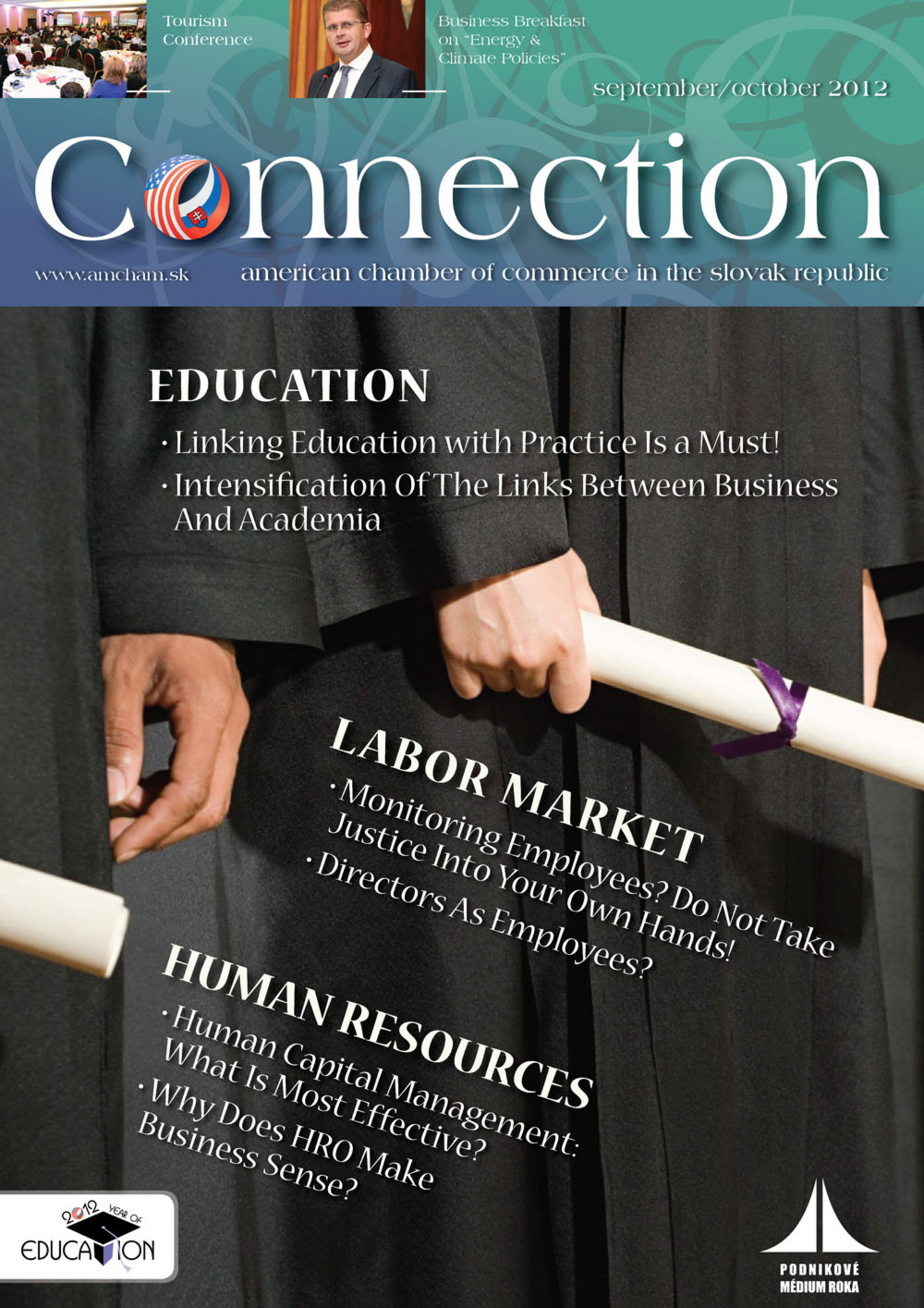The globalization of the economy brings along the greater mobility of
the workforce. Recently, migration of the workforce within corporations
has increased significantly and has become an effective tool for
preserving and building the corporation’s knowledge. Below we address a
few legal issues one should be aware of before sending an employee
abroad or accepting a posted employee of another employer.
Mobility of the workforce
Prepared by AmCham member: Allen & Overy Bratislava
The globalization of the economy brings along the greater mobility of the workforce. Recently, migration of the workforce within corporations has increased significantly and has become an effective tool for preserving and building the corporation’s knowledge. Below we address a few legal issues one should be aware of before sending an employee abroad or accepting a posted employee of another employer.
Business & Educatio, Labor Market & HR
- Linking education with practice is a must!
- The Best Employer 2012
- A tradition of excellence: Bratislava’s leading international school celebrates its 15th anniversary
- What´s hot on the labor market?
- Zero labor turnover rates – mission possible
- Managing or sponsoring language training?
- Rethinking English language training
- Community works: QSI International School of Bratislava partnership in education
- Why does HRO make business sense?
- Parallel run of notice period and severance pay is back
- In cloud we trust Top ways to securely implement BYOD
- Human capital management: What is most effective?
- New limits for flexibility of employment
- Directors as employees?
- HR: Expectations versus reality of head-hunting in Europe and Russia
- Monitoring employees? Do not take justice into your own hands!
- Your workplace can attract, engage and retain knowledge workers
- Mobility of the workforce
- Will you still prefer to employ a student?
- Whistleblowing: Reporting unfair practices or rule violations in the workplace
- The new labor law: Wake-up call to employers!



Follow us